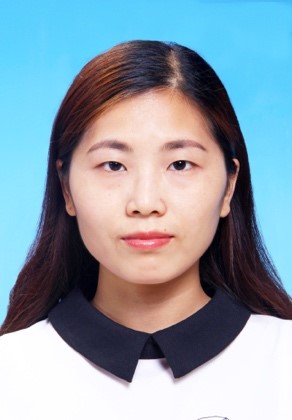 Name:WANG Fengli
Name:WANG Fengli
PhD, Associate Professor, Master/Doctoral Supervisor
Research Interests: Biology of Reproduction
Phone Number: 13121200790
E-mail: wangfengli@hust.edu.cn
Contact Address: No. 13 Hangkong Road, Qiaokou District, Wuhan City, Hubei Province, China.
Institute of Reproductive Health, Tongji Medical College
Huazhong University of Science and Technology
Academic experience:
From 2011 to 2015, I studied in Institute of Zoology, Chinese Academy of Sciences as a PhD candidate. During this period, my project mainly focused on epigenetic modifications in neurological diseases such as Huntington’s disease to get insight into the pathogenic mechanisms underlying this disease.
During Sep. 2015 to Oct. 2018, I did research work in the Institute of Zoology, Chinese Academy of Sciences as postdoctoral fellow under the supervision of professor Tang tieshan. My work focused on the abnormal DNA damage repair mechanisms in nervous system, especially explored the function of pathogenic proteins of RTT syndrome and ALS (amyotrophic lateral sclerosis) in DNA damage repair.
Academic achievements:
I have undertaken one project of the China Postdoctoral Fundation and participated in three projects of the National Natural Science Foundation of China. At present, I have published 13 SCI papers, of which 7 papers have been published as the first/co-first authors, mainly on acdemic journals such as Nucleic Acids Research, Human Molecular Genetics, Epigenomics, Cellular Signaling, Molecular Biology Reports and so on.
Research fields:
1. The role of DNA damage repair pathway in gametogenesis
2. Abnormal DNA damage repair response and the occurrence of female reproductive system cancers (ovarian, cervical and endometrial cancers)
3. DNA damage response during reproductive system aging
Awards and Honors:
Second Prize of the Third “Hengyuanxiang Talent” Award, 2014
Chinese Society of Neuroscience-Sanofi Excellent Conference Paper Award, 2013
National scholarship for doctoral students, 2013
"Merit Student" of University of Chinese Academy of Sciences, 2013
Excellent Master's Thesis of Huazhong Agricultural University, 2011
Projects undertaken or participated:
China Postdoctoral Fundation; The Fundamental Research Funds for the Central Universities’, HUST
Participate in 3 projects of the National Natural Science Foundation of China.
Selected publications:
1. Wang F.L., Yang Y, Lin X, Wang JQ, Wu YS, Xie W, Wang D, Zhu S, Liao YQ, Sun Q, Yang YG, Luo HR, Guo C, Han C, Tang TS. Genome-wide loss of 5-hmC is a novel genetic feature of Huntington's diseases. Hum Genet 22: 3641-53, 2013. (DOI: 10.1093/hmg/ddt214. IF2013= 6.677)
2. Wang F.L., Fischhaber PL, Guo C, Tang TS. Epigenetic modifications as novel therapeutic targets for Huntington's disease. Epigenomics 6:287-97, 2014. (DOI: 10.2217/epi.14.19. IF2013 = 5.215)
3. Gong J., Huang M., Wang F.L., Ma X., Liu H., Tu Y., Xing L., Zhu X., Zheng H., Fang J., Li X., Wang Q., Wang J., Sun Z., Wang X., Wang Y., Guo C. and Tang T.S. "RBM45 s with HDAC1 for binding to FUS in response to DNA damage." Nucleic competencies, 2017. (IF2016 = 10.16, co-first author)
4. Wang F.L., Wang H, Wu H, Qiu H, Zeng C, Sun L, Liu B. TEAD1 controls C2C12 cell proliferation and differentiation and regulates three novel target genes. Cell Signal 25:674-81, 2013. (DOI: 10.1016/j. cellsig. 2012.11.027. IF2013 = 4.471)
5. Wang F.L., Qiu H, Zhang Q, Peng Z, Liu B. Association of two porcine reproductive and respiratory syndrome virus (PRRSV) receptor genes, CD163 and SN with immune traits. Mol Biol Rep 39:3971-6, 2012. (DOI: 10.1007/s 11033-011-1177-4. IF2012 = 2.506)
6. Yang Y., Liu Z., Wang F.L., Temviriyanukul P., Ma X., Tu Y., Lv L., L in Y.F., Huang M., Zhang T., Pei H., Chen B.P., Jansen J.G., de Wind N., Fischhaber P.L., Friedberg E.C., Tang T.S. and Guo C. "FANCD2 and REV1 in the protection of strands in DNA replication" Nucleic Acids Res 43 (17): 8325-8339, 2015. (IF2015 = 9.2, co-first author)
7. Wu H., Wang F.L., Hu S., Yin C., Li X., Zhao S., Wang J., Yan X. MiR-20a and Mi-106 B negatively regulated autophagy induced by leucine deprivation via suppression of ULK1 expression in C2C12 myoblasts. Cell Signal 24: 2179-86, 2012. (DOI: 10.1016/j. cell sig. 2012.07.001. IF2012= 4.304, co-first author)
Students who interested in reproductive medicine, reproductive biology and cancer development are welcome to apply for Master's and Doctor's degrees and join our research group.
